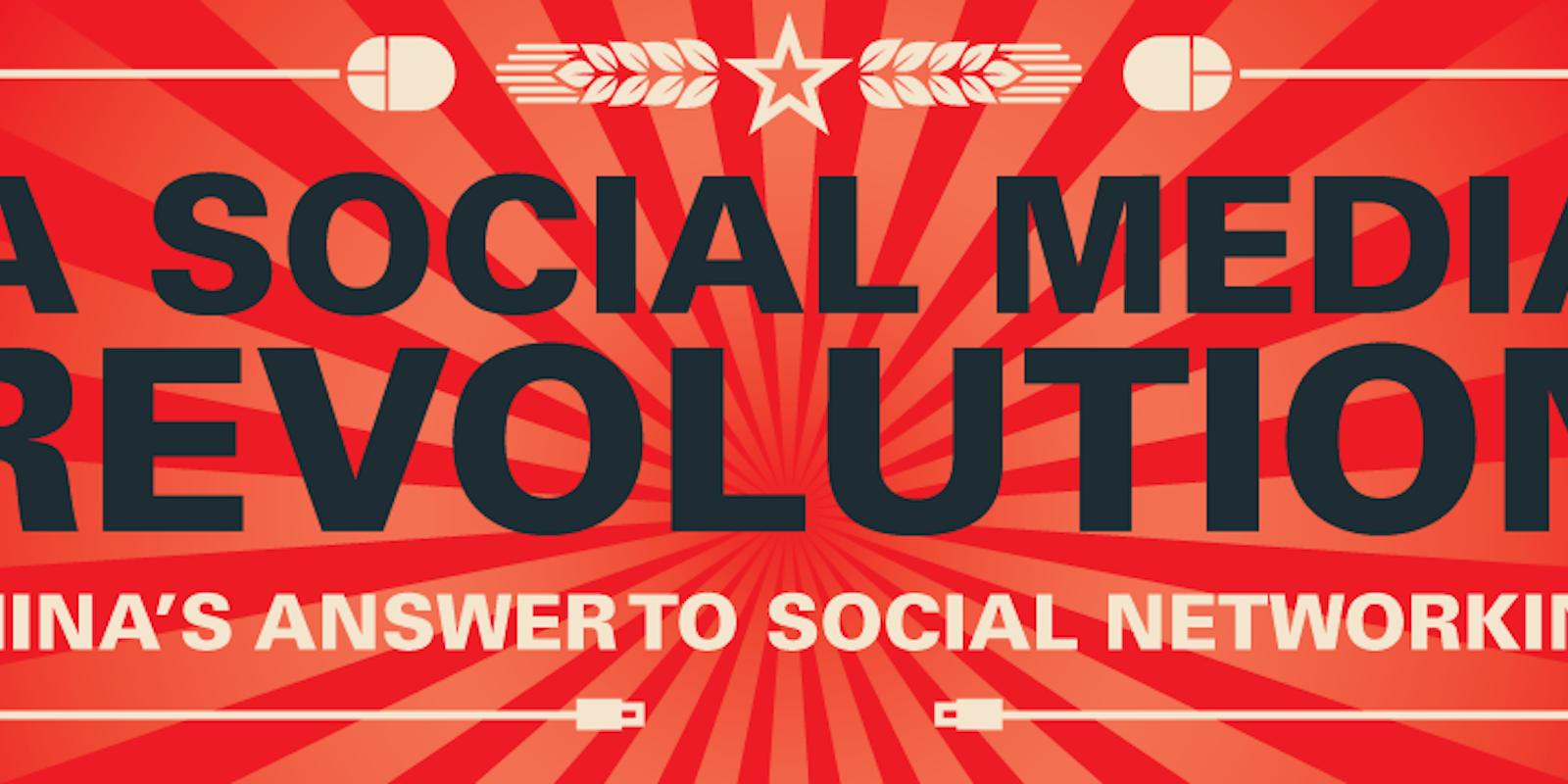China boasts the most Internet users in the world but blocks Facebook and Twitter, the most popular social networks. That’s encouraged domestic copycat networks from popping up and dominating the Chinese market.
You may have never heard of Sina Weibo or RenRen, but hundreds of millions of Chinese use them daily. The service are already shaping China’s society the way Facebook and Twitter have done elsewhere in the world.
To help guide you through the Chinese social media maze, GPlus, a new business question and site, has produced this handy infographic: “Social Media Revolution”
The infographic won’t win any beauty awards, but it performs the basics admirably. If you know nothing about the Chinese Internet or social Web, it’s great primer.
We’re less impressed by the assumptions it makes about why social media is so popular in China. Ask that question anywhere most places in the world, and the answers are pretty obvious: Facebook and Twitter are great tools for communication and learning.
But apparently the Chinese only use social networks because of far more complex socio-cultural reasons. One of these, the infographic claims, is the one-child policy. What could be more alien and quintessentially Chinese than that autocratic communist policy?
The one-child policy spawned an “Internet generation of children without siblings,” the inforgraphic claims. If you’re an only child, you have no recourse for companionship beyond social media, this seems to imply. I guess friends and relatives are out of the picture, huh?
We’re going to take a wild guess here and say that’s pretty much bunk. Social networks are growing in China because they’re great tools for communication and learning. Turns out the Chinese aren’t so different from the rest of the world.



